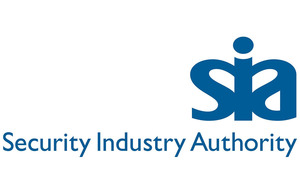Door supervisor who gave his SIA licence to a family member is given 32 weeks' suspended sentence
Muyiwa John Adegbola pleaded guilty to fraud for allowing his brother-in-law to use his Security Industry Authority (SIA) licence.

On Monday 11 January 2021 Muyiwa John Adegbola, a door supervisor based in Manchester, pleaded guilty to fraud for allowing his brother-in-law to use his Security Industry Authority (SIA) licence. He was sentenced at Manchester Minshull Street Crown Court to 32 weeks’ imprisonment, suspended for 12 months. The SIA also prosecuted Adegbola for failing to provide information as part of its investigation.
On 7 June 2019, when SIA investigators were carrying out licensing checks with Cheshire Constabulary, they visited the Revolution Bar in Wilmslow and found a door supervisor who had an SIA licence bearing the name M Adegbola. However, when he was asked to confirm his address as part of the checks, he was unsure of those details. When questioned further, he admitted that he was not Adegbola, but his brother-in-law.
SIA investigators seized the SIA licence. Further enquiries revealed that Adegbola was employed as a door supervisor but claimed to have lost his SIA licence during Christmas 2018. He was sent a replacement, which was the licence his brother-in-law used in June 2019. Having uncovered that Adegbola had provided his SIA licence to another, the SIA suspended it on 12 June 2019.
A week later, Adegbola contacted the SIA to dispute the suspension of his licence. He claimed to have lost his wallet with his SIA licence inside it and had reported this to the police. He also stated that he was on sick leave, implying that he could not have been working in June 2019.
The SIA contacted Adegbola again to request further information. However, he failed to respond, which is an offence under the Private Security Industry Act (PSIA) 2001.
Nathan Salmon, the SIA’s Criminal Investigations Manager, said:
Mr Adegbola facilitated an unlicensed person undertaking a role as a Door Supervisor without the required training or verification. He did this by providing his own licence and continuing to receive renumeration, which he then passed on. This is a totally inappropriate and fraudulent course of action.
While Adegbola thought he could lie and get away with it, the court saw through this and we are pleased with the result.
In addition to the 32 weeks’ suspended sentence, Adegbola has been ordered by the court to complete 20 days of rehabilitation activity and 80 days of unpaid work. In addition, he was ordered to pay costs of £200, a victim surcharge and his SIA licence has been revoked.
The SIA is prosecuting Adegbola’s brother-in-law separately.
Notes to editors:
- by law, security operatives working under contract must hold and display a valid SIA licence
- read about SIA enforcement and penalties
- the offence relating to the Private Security Industry Act (2001) that is mentioned in the above news release is: Section 19 (failing to provide information relating to an investigation)
- read the Private Security Industry Act (2001)
- the offences relating to the Fraud Act (2006) that are mentioned in the above news release are: Section 1 (aiding and abetting by false representation); Section 7 (supplying an article for use in fraud) (his SIA licence)
- read the Fraud Act (2006)
Further information:
- The Security Industry Authority is the organisation responsible for regulating the private security industry in the United Kingdom, reporting to the Home Secretary under the terms of the Private Security Industry Act 2001. Our main duties are: the compulsory licensing of individuals undertaking designated activities; and managing the voluntary Approved Contractor Scheme.
- For further information about the Security Industry Authority visit www.gov.uk/sia. The SIA is also on Facebook (Security Industry Authority) and Twitter (SIAuk).
- Media enquiries only please contact: 0300 123 9869, media.enquiries@sia.gov.uk
Updates to this page
-
Corrected factual errors - specifcally, the sentence and the details of the offences referred to in the press release.
-
First published.